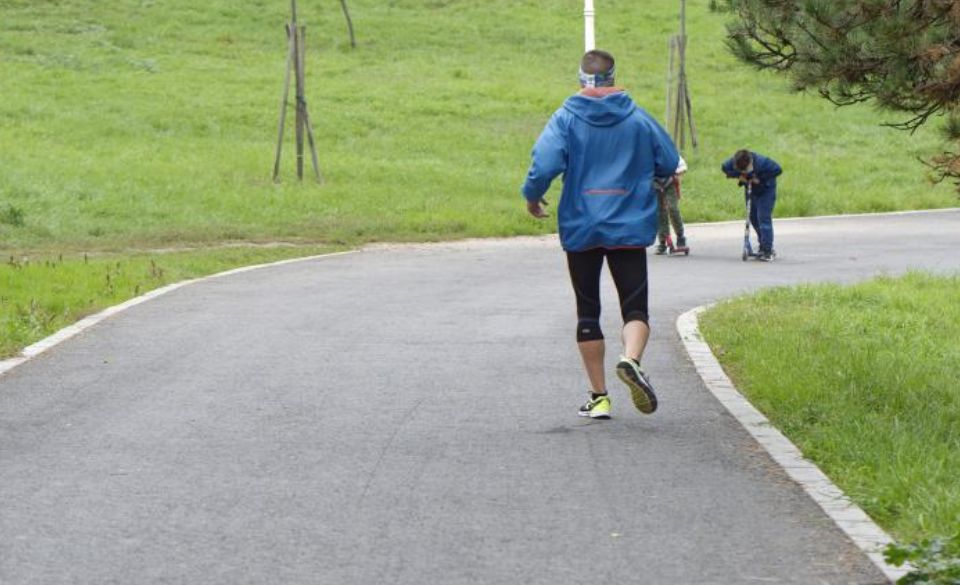
How To Manage & Prevent A DNF In A Running Race
A DNF (Did Not Finish) is a common outcome for any race, whether it be an ultra-marathon, an Ironman triathlon, or a 5K. It can be a devastating blow to any athlete, and a major setback in their training and racing goals. There are several strategies that athletes can use to manage and prevent a DNF while racing.
First and foremost, athletes should focus on proper preparation and training. This includes building a solid fitness base, gradually increasing the intensity and duration of training as the race approaches, and working to develop the mental strength and focus to stay strong throughout the entire event. Athletes should also ensure that they have the proper nutrition and hydration for their race, as well as any necessary recovery and rest time.
Next, athletes should plan for the worst. This means mapping out a strategy for how to handle any potential difficulties that may arise during the race. This can include having a plan for dealing with injury, fatigue, or any other unexpected issues that may arise. Being prepared for any situation can help athletes stay focused and in control of their race.
Third, athletes should be aware of their bodies and pay attention to any warning signs of injury or fatigue. If an athlete feels any pain or discomfort, they should stop and rest or seek medical attention if necessary. This can help prevent a DNF or any serious injury or illness.
Finally, athletes should be willing to adjust the goal of their race if necessary. This can mean slowing down or taking a break if they are feeling tired or taking a short cut in order to make it to the finish line. It is important to remember that the goal of any race is to finish, not necessarily to achieve a certain time or place.
In conclusion, managing and preventing a DNF while racing requires proper preparation, planning, and attention to the body’s warning signs. By following these strategies, athletes can increase their chances of success and avoid the disappointment of a DNF.
Why Do Runners DNF?
Runners DNF, or “Did Not Finish”, during a race for a variety of reasons. It is a common occurrence in the running world, and can be disheartening for the athlete. Even more so, it can be difficult to understand why a runner would have to drop out of a race. While there is no single answer to this question as every runner’s experience is unique, there are a few common reasons that can cause a runner to DNF.
The most common reason for a runner to DNF is due to physical issues. This could range from an injury, such as a pulled muscle or a stress fracture, to more severe medical issues like dehydration, hypothermia, or asthma. A runner may also suffer from a lack of energy, which can be caused by a variety of factors, including not having eaten enough prior to the race, not drinking enough fluids, or not training adequately. All of these issues can cause a runner to become fatigued, making it impossible to continue the race.
Another common reason for a runner to DNF is due to a lack of motivation or a lack of mental toughness. Running a race can be an intimidating and physically exhausting experience, and it’s not uncommon for a runner to become overwhelmed by the challenge. This lack of motivation or mental toughness can cause a runner to “give up” before they even reach the finish line.
The weather conditions can also be a factor in a runner’s decision to DNF. If the weather is too hot or too cold, runners can become uncomfortable and the environment can make it difficult to complete the race. Additionally, if the terrain is too hilly or the course is too difficult, a runner may decide that they are unable to continue on.
Finally, a runner may decide to DNF due to unforeseen circumstances. This could include an illness that flares up during the race, an accident that causes injury to the runner, or any other unexpected issue that arises during the race. The runner may not be able to finish the race due to these unexpected issues.
In conclusion, runners DNF for a variety of reasons. Physical issues, such as injuries or energy depletion, can cause a runner to drop out of a race. A lack of motivation or mental toughness can also cause a runner to DNF. Additionally, the weather and the terrain can make a race too difficult for a runner to complete. Finally, unforeseen circumstances can also cause a runner to DNF.
How To Stop Yourself From Not Finishing a Race (DNF)
It can be incredibly frustrating and disheartening to have trained for weeks, months, or even years for a race only to not finish a running race. Fortunately, there are steps you can take to prevent DNFs from happening. Here are some tips to help you stop yourself from not finishing a race:
1. Make a Training Plan: Before you even begin training for a race, create a detailed training plan that outlines what you need to do in order to be ready for the race. This plan should include your weekly mileage, intensity workouts, rest days, and any other details that will help you prepare for the race. Stick to the plan and adjust it as needed in order to ensure that you are adequately prepared.
2. Don’t Overtrain: It is important to follow your plan and not overtrain. Overtraining can lead to injury and fatigue which can set you back and make it difficult to finish a race. Pay attention to your body and take rest days when needed so that you can avoid injury and fatigue.
3. Stay Hydrated: It is essential to stay hydrated during training and on race day. Dehydration can lead to fatigue and other complications that can make it difficult to finish a race. Make sure to drink plenty of fluids during your training and on race day.
4. Eat Healthy: Eating healthy is important for both racing and training. Eating the right foods will provide your body with the energy it needs to perform at its best and help keep you from DNFing. Make sure to eat a balanced diet with plenty of fruits and vegetables and get enough protein.
5. Set Reasonable Goals: It is important to set realistic goals for yourself. Don’t push yourself too hard and expect to finish a race. Setting reasonable goals and gradually increasing your pace will help you to avoid DNFs.
6. Practice Race-Day Strategies: Practicing race-day strategies can help you to be prepared and stay focused. This could include things like eating breakfast before the race, running at a steady pace, and taking in fluids during the race.
7. Get Enough Sleep: Getting enough sleep is essential for performance. Make sure to get at least eight hours of sleep per night during training and on race night. This will help your body to recover and be ready for the race.
8. Listen to Your Body: Pay attention to your body and listen to what it is telling you. If you feel pain or fatigue, then stop or slow down. Don’t push yourself too hard and risk injury or DNF.
9. Visualize Success: Visualizing success can help you to stay motivated and push yourself to do your best. Before the race, take a few minutes to close your eyes and imagine yourself crossing the finish line. This will help to keep you focused and motivated.
10. Have Fun: Remember that running is supposed to be fun. Don’t get too caught up in times and goals and take the time to enjoy the process. Have fun and make it a positive experience.
By following these tips, you can help to prevent DNFs and reach your goals. Remember to stick to your training plan, get enough sleep, eat well, stay hydrated, and listen to your body. Visualize success and have fun and you will be sure to avoid DNFs.


